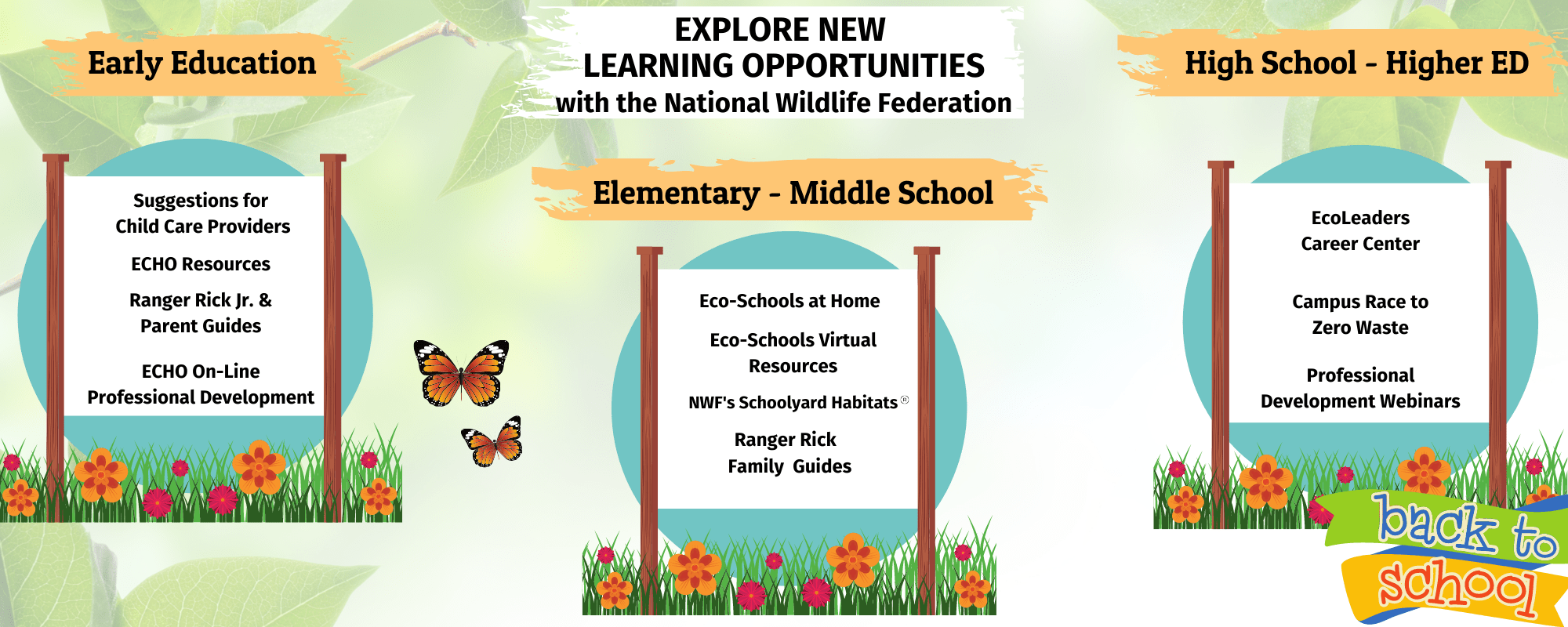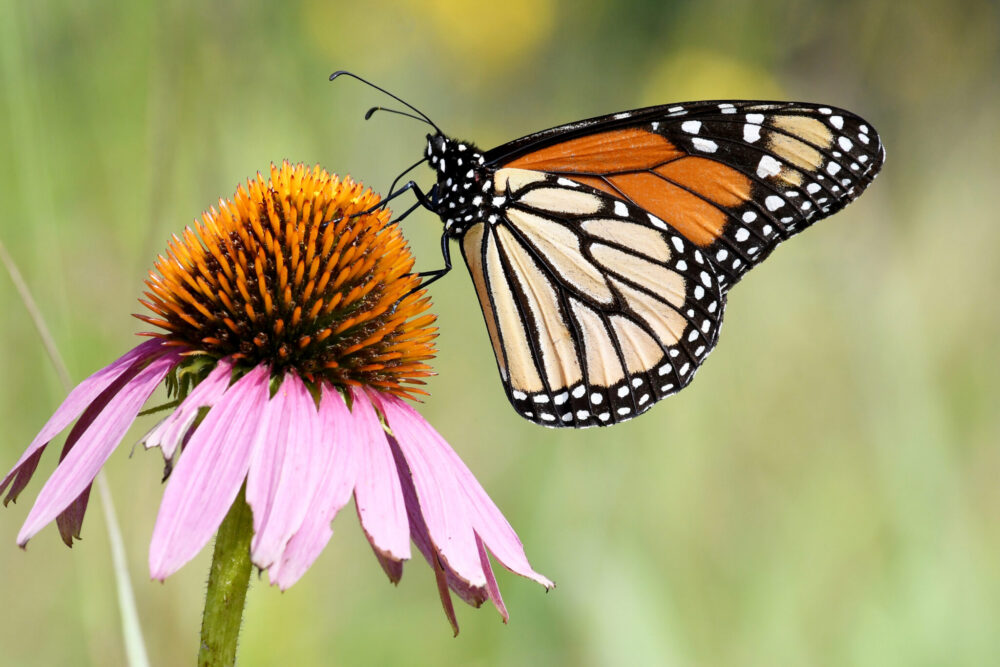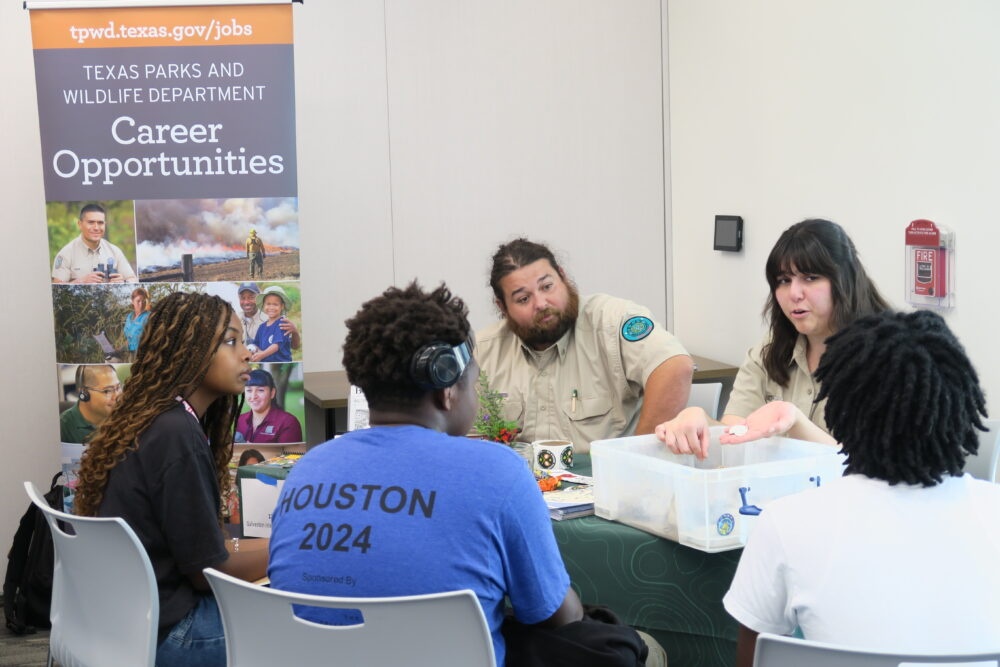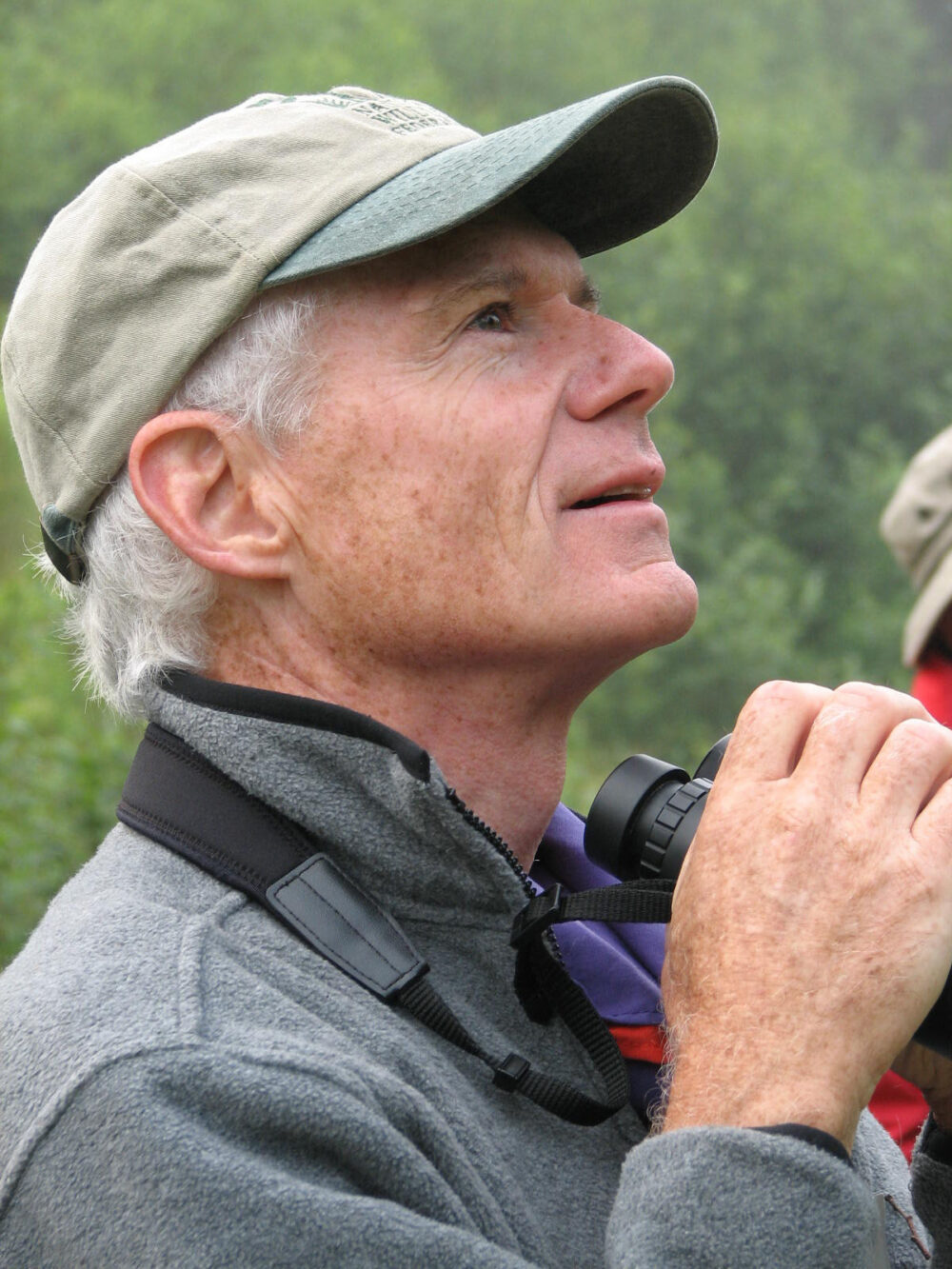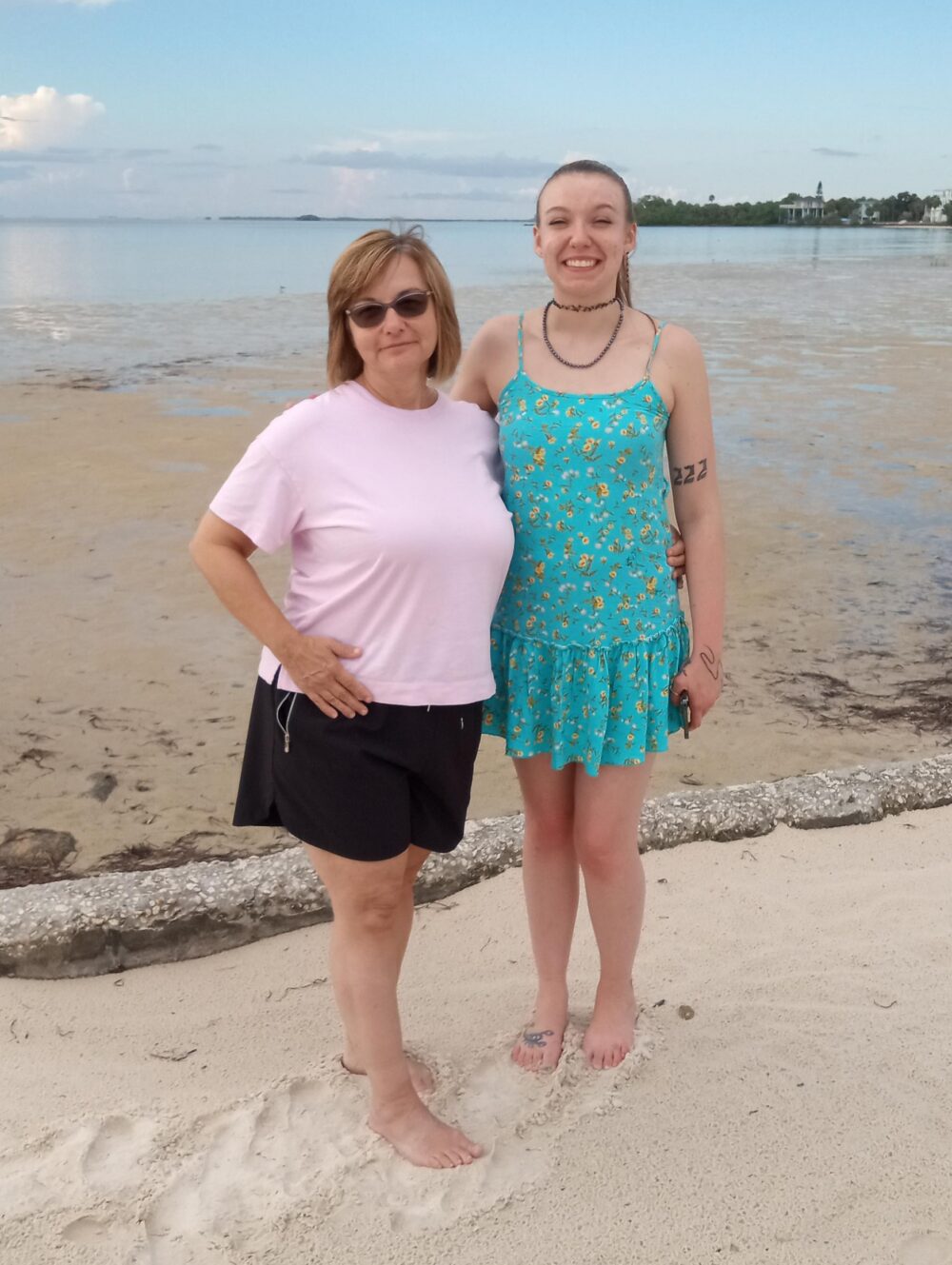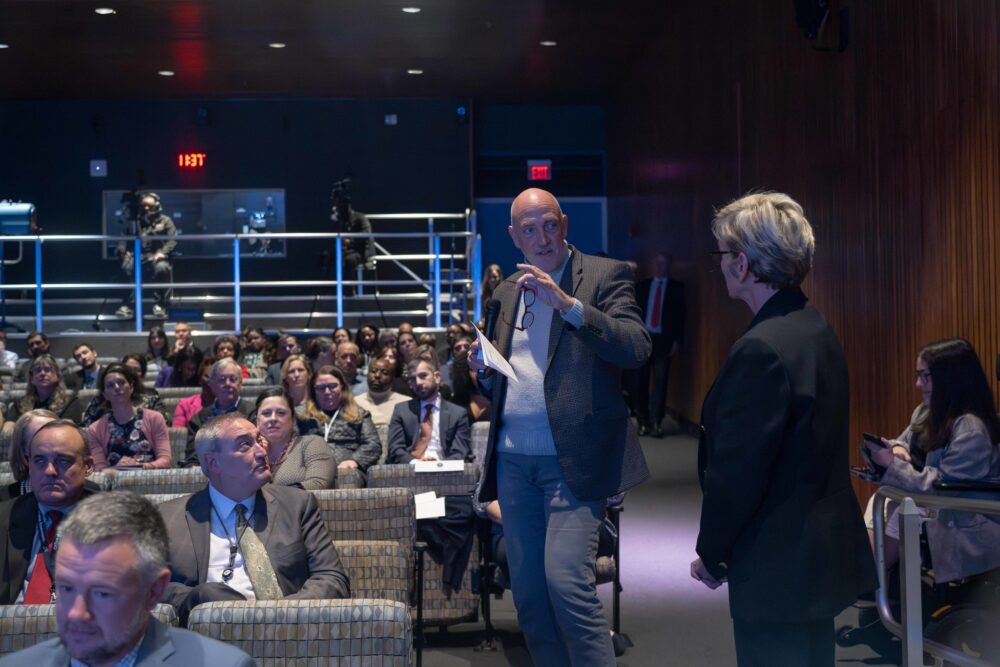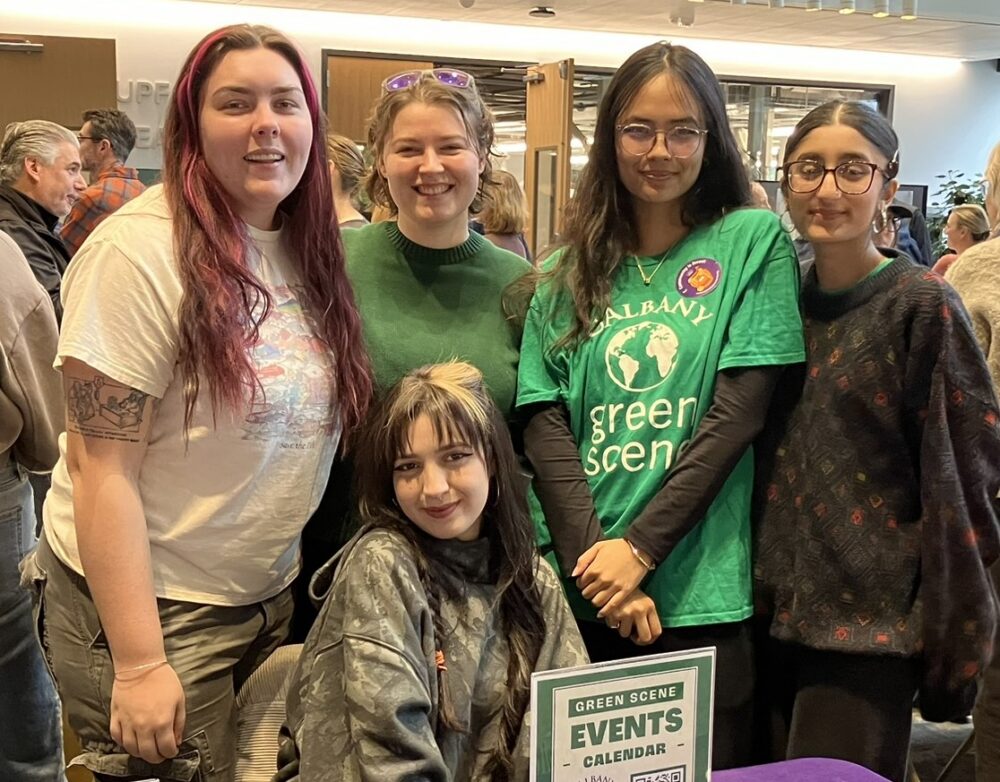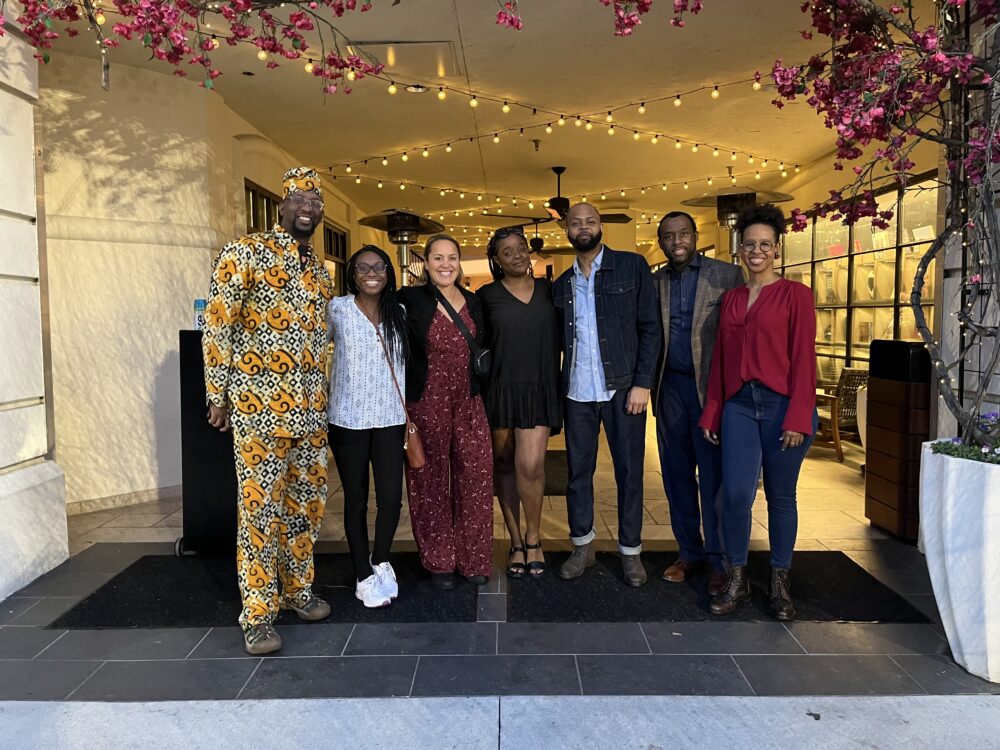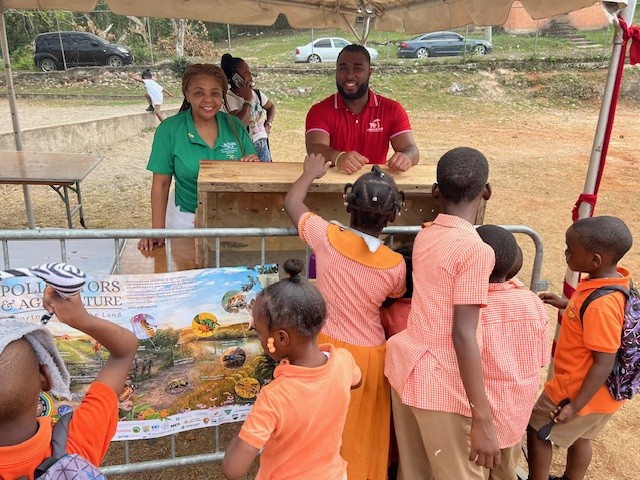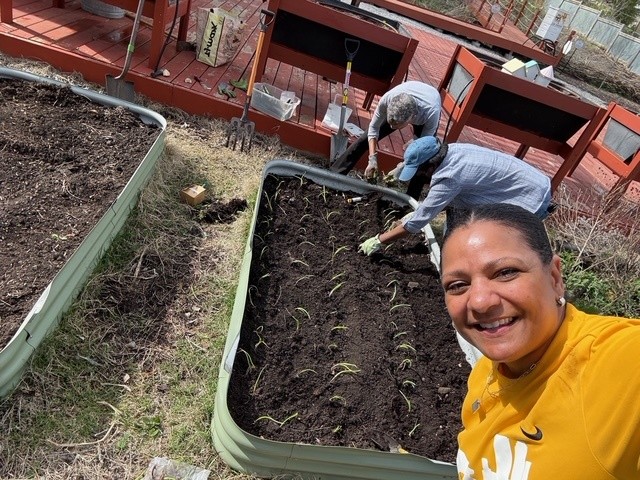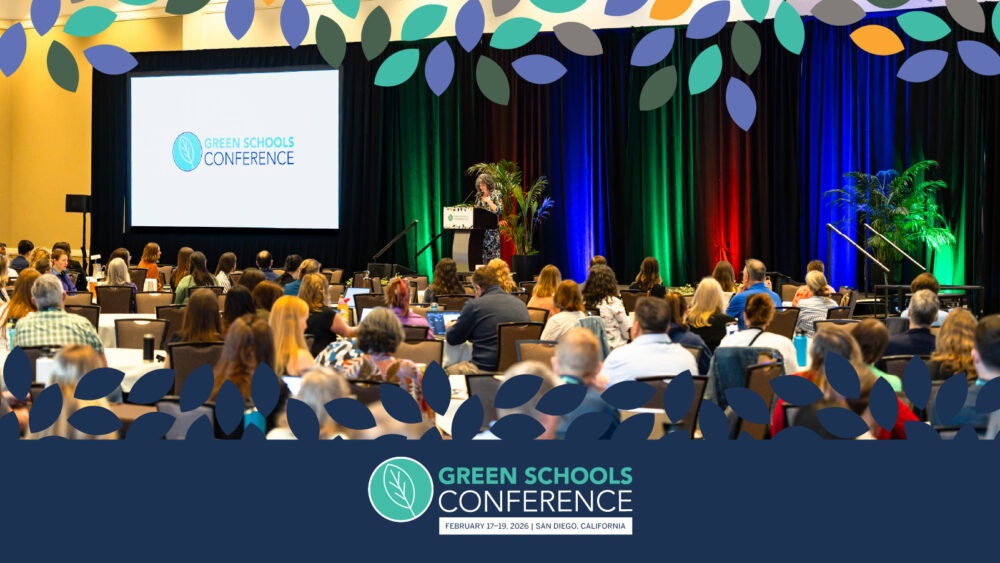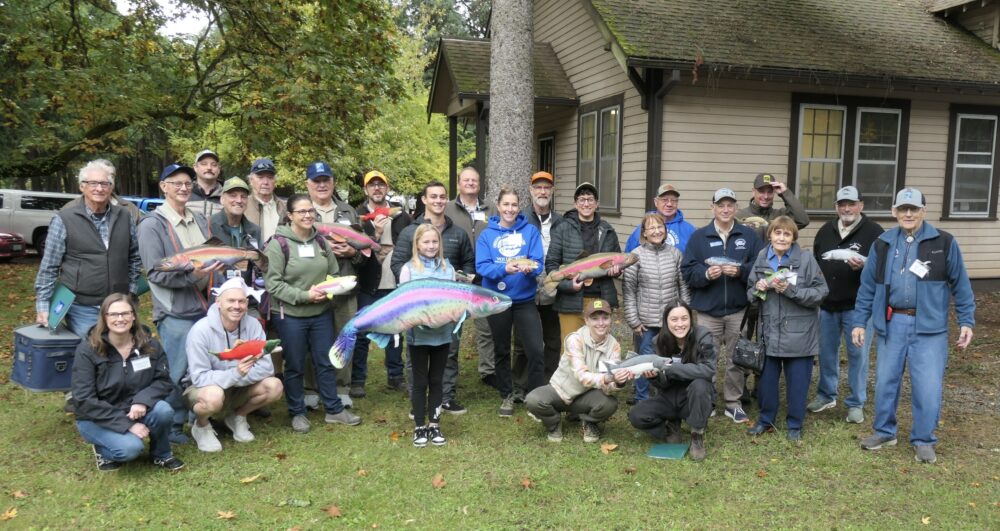We have much more to do and your continued support is needed now more than ever.
Environmental Education Goes Virtual: Creating Meaningful Learning Opportunities at Home

As schools, teachers, students, and families prepare for a new year of learning, COVID-19 has re-defined where and how students learn and the definition of who is teaching them. The National Wildlife Federation (NWF) believes that we have the opportunity to re-envision education and to support teachers and their students where they are with meaningful and equitable learning opportunities. Whether this learning is in-person or virtually, utilizing environment-based and outdoor education as a focus for learning provides flexibility and adaptations that can support new teacher-family-student learning communities.
Over the past 6 months the entire construct of what constitutes a “learning classroom” has shifted. Many students have utilized their homes, their backyards, public spaces and their communities for learning, finding that making those connections to the outdoors and local community has been a safe and important component to education. As such, it is important to acknowledge that not all students have access to a backyard or local green space. COVID-19 has amplified the inequitable distribution of local outdoor green spaces that are safe for learning, play, and relaxation.
The long-held focus of National Wildlife Federation’s Education programming has been on providing equitable opportunities for individuals to connect with nature and explore, analyze and act on many key environmental issues facing communities such as climate change, wildlife conservation, and environmental justice. As we pivot our strategy to adapt to this new world of learning, the National Wildlife Federation is committed to continuing our focus on providing environment-based learning opportunities whether in person or virtually. We have adapted our programming and are developing new flexible learning opportunities for teachers, students, and families from pre-K to higher education.
Early Education
The COVID-19 pandemic has highlighted the urgent need for healthy child care settings where young children and providers can be safe while empowering parents to go back to work. The National Wildlife Federation’s Early Childhood Health Outdoors (ECHO) program and North Carolina State University’s Natural Learning Initiative (NLI) have produced resources for child care providers and regulators to inspire action that can improve the health of our youngest children.
- COVID-19 Suggestions for Child Care Providers
- ECHO Resources: A collection of resources to provide the most up-to-date reports, toolkits, research, and other information about connecting children to nature including How-to-Guides on creating dynamic play spaces for children, and a series of Nature Play at Home guides that shows families affordable ways to turn outdoor space into vibrant Nature Play Spaces™.
- ECHO Online professional development: Online training and PD options to child care providers seeking to maximize use of their outdoor spaces.
- Ranger Rick Jr. and Parent Guides: Each month in association with our Ranger Rick Jr. magazine (ages 4-7), NWF has put together a parent guide that is available in both English and Spanish which complements the digital edition of Ranger Rick Jr. magazine, currently available for free.
Elementary – Middle School Education
Environmental and outdoor education programs present promising tools for newly defined learning communities. The new Eco-Schools USA at Home provides hands-on opportunities for teachers, caregivers, students, and families to engage in sustainability such as energy and sustainable food using homes and local communities as classrooms.
- Eco-Schools USA at Home: National Wildlife Federation’s Eco-Schools USA can now be done at home. Discover how Eco-Schools USA has adapted its program to new learning environments. Find additional program resources with home-based activities for teachers, parents as teachers, and caregivers. Five core modules addressing Biodiversity, Consumption and Waste, Energy, Sustainable Food, and Watersheds, Oceans and Wetlands are available for students to practice sustainability from where they learn and earn recognition.
- Eco-Schools USA Virtual Resources: Learning virtually and learning at home can be fun and challenging. In an effort to support teachers and parents during the COVID-19 crisis, we’ve put together a collection of activities and crafts to help you connect your students and children to nature, even from inside your home.
- NWF’s Schoolyard Habitats® – Take Learning Outside: National Wildlife Federation’s Schoolyard Habitats® program can help schools expand classrooms into outdoor green spaces – on and off school grounds – options to reduce the density of crowded indoor spaces providing safe alternatives and equitable spaces for student learning.
- Ranger Rick @ Home – Family Guides: Each month in association with our digital edition of Ranger Rick® magazine (ages 7-12), National Wildlife Federation offers a family guide that provides family-friendly ways to stay connected to nature, currently available for free.
High School and Higher Education
High school and college students are currently facing their own unique set of challenges such as navigating COVID-19 on campuses, addressing issues such as environmental justice and plastic pollution, while still trying to formulate future education and career plans. Programs like EcoLeaders and Campus Race to Zero Waste provide important tools and resources to serve students today and into the future.
- EcoLeaders: The EcoLeaders program advances the sustainability leadership and career development of juniors and seniors in high school, college students and young professionals. This free program provides an online support community, a career center and discussion forums for students looking to grow their understanding of and take action on environmental issues. Students can also earn EcoLeader project certification, which can be used to build your college, internship and fellowship, graduate program and professional resume.
- EcoLeaders Career Center: The EcoLeaders Career Center provides support to high school and college students and young professionals looking to explore and map out personal career paths and develop key competencies to achieve their sustainability career goals. The Center also offers a EcoLeaders Career Services Toolkit for high school guidance counselors, college career services, as well as faculty, to help integrate tools, resources, and events into their career development programming as well as information and archives of the EcoCareers Conference.
- Campus Race to Zero Waste (CR2ZW) is a college and university program to help campuses reduce waste, increase recycling and work towards zero waste. The Campus Race to Zero Waste (formerly RecycleMania) hosts an eight-week competition in the spring (February-March) when campuses across the U.S. and Canada compete to reduce waste and provide online resources and opportunities throughout the year to support campus efforts to tackle their waste footprint. Fall 2020 opportunities include: Stemming the Tide: Taking Action Against Plastic Pollution on Campus a new NWF guide that includes information about the plastics pollution problem, its impacts on humans and wildlife, action ideas, and educational strategies. Many of the activities featured in the guide can be transferable to K-12 schools, as well as residential and business communities.
- This fall, the CR2ZW Professional Development Webinar Series helps campuses get ready to compete in the spring competition. Topics include a competition overview, how to engage your campus community in the competition, as well as tracking and reporting. A special webinar will be hosted on October 8 – Tackling Plastics Pollution on campus.

